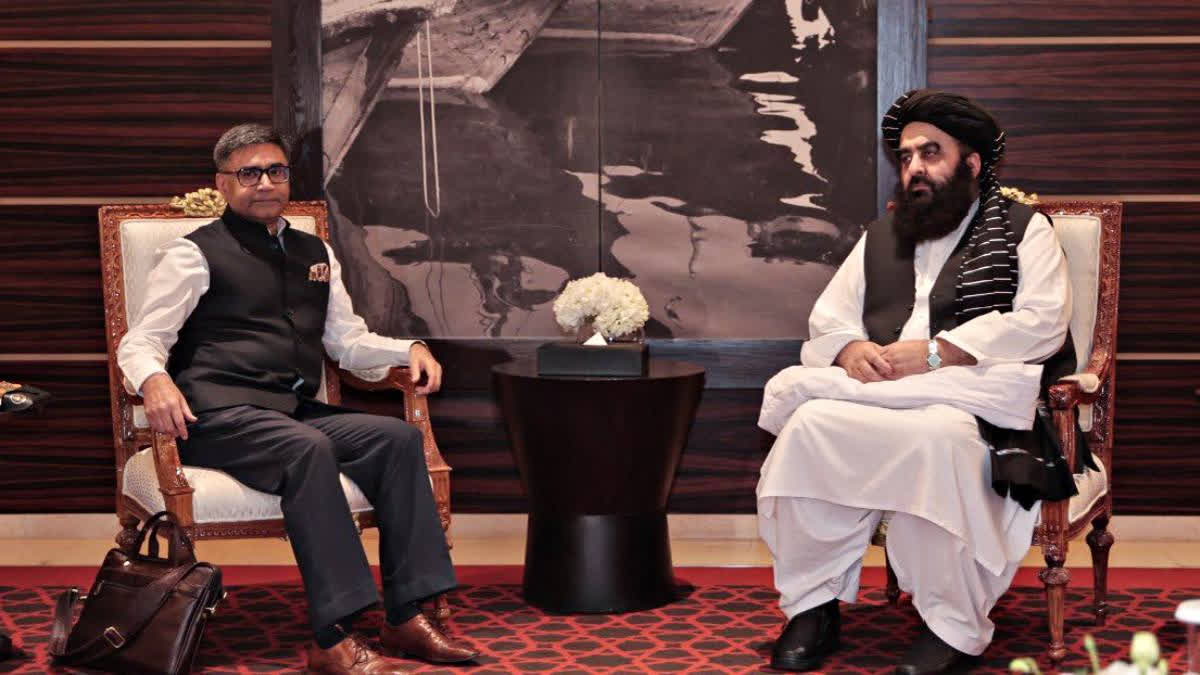New Delhi: The recent meeting between the Indian foreign secretary, Vikram Misri, and the Afghanistan Acting Foreign Minister, Mawlawi Amir Khan Muttaqi, in Dubai, is the latest in the changing scenario in South Asia. The landscape began to change with the overthrowing of the Sheikh Hasina regime in Bangladesh in August last year. Since then, despite Bangladesh requesting India for rice and continued support, it has begun gravitating towards Pakistan.
Import of ammunition and foodgrains from Pakistan as well as the forthcoming visit of the Pak foreign minister, Ishaq Dar, to Bangladesh, is indicative of the changing scenario in the region. Ishaq Dar mentioned that Bangladesh is Pakistan’s ‘lost brother.’ This visit follows a series of meetings between the Bangladesh interim government leader, Mohamad Yunus, and Pakistan’s PM, Shehbaz Sharief, where both have attempted to reignite ties.
Yunus’s regular demand for re-invigorating SAARC has come as a damper to New Delhi. India ignores this demand from Yunus while continuing to engage with Dacca hoping to re-set ties.
There are also reports that military-to-military cooperation between Pakistan and Bangladesh is on the rise. Inputs mention that Bangladesh is considering purchasing Abdali short-range ballistic missiles from Pakistan and tanks from Turkey as a deterrent against India.
In addition, commencing from Feb this year, the Pakistan army would commence training Bangladesh forces. The training would be conducted in four Bangladesh cantonments. The Pakistan team would be headed by a major general rank officer.
While training by Pak troops is not a major concern for India what remains a worry is the increased radicalization which Pakistan would indulge in. Added would be the anti-India content in the agenda, pushing Indo-Bangladesh military relations into unchartered territory. Bangladesh has no threat other than India. With the entry of Pakistan into the country, China would soon follow. This would be an added concern.
Further, this would open doors for Pakistan’s ISI to gain a foothold to re-establish bases to train anti-India insurgent groups in the country. It had been doing so earlier. Bangladesh could also become a conduit for moving Kashmiri militants into India. Unconfirmed reports mention that this has already begun.
The meeting between the Indian foreign secretary and the Afghanistan-acting foreign minister was a means of conveying a warning to Islamabad on what could happen in case it decides to provoke India from Bangladesh. Currently, Pakistan and Afghanistan are not on best of terms, despite Pakistan having supported the Taliban during its struggle against the US and NATO in Afghanistan.
Increased attacks by the TTP (Tehreek-e-Taliban Pakistan) and Baloch Freedom Fighters, all employing bases in Afghanistan, have pushed the Pak army to the brink. In desperation, Pakistan launched an aerial assault on a supposed hideout of the TTP in Afghanistan. The result was about fifty killed, largely women and children, mainly refugees returned from Pakistan. This led to retaliation from Kabul.
India displayed solidarity with Afghanistan and criticized the airstrike, which Pakistan claimed was to protect its people from further attacks. The Indian MEA statement read, ‘We unequivocally condemn any attack on innocent civilians. It is an old practice of Pakistan to blame its neighbours for its own internal failures.’ India was the only nation which did so.
This display of solidarity just prior to the meeting in Dubai was significant. It displayed that India is backing Afghanistan in its struggle with Pakistan. India has an excellent standing in Afghanistan. It is respected for its aid and support. Ironically, the most hated entities in Afghanistan are Pakistan and the ISIS, whom Rawalpindi supports. India, by its latest actions is building on this goodwill.
